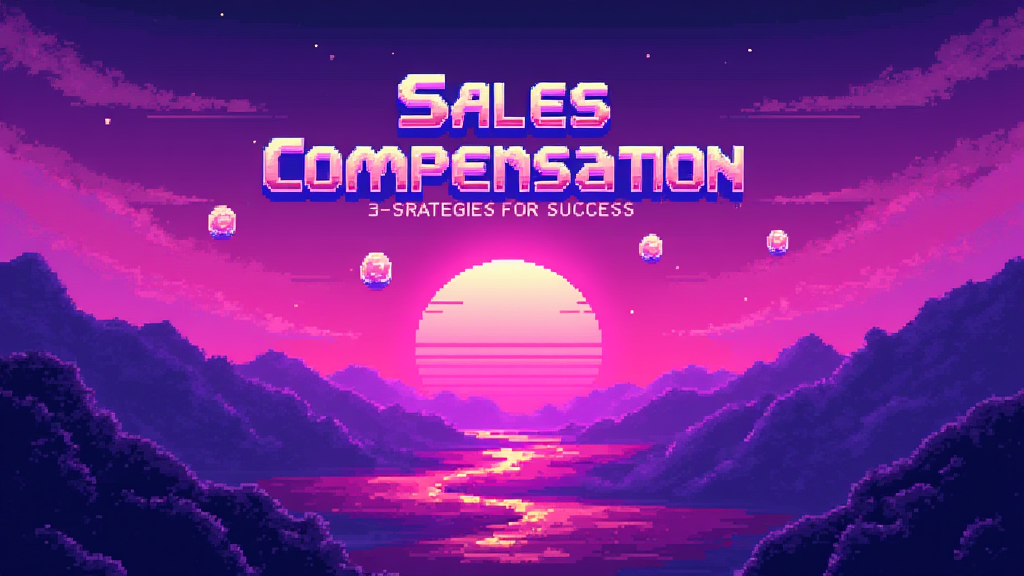Sales Compensation: Strategies for Success

Published on: October 01, 2024
Sales compensation is a critical component of any successful sales organization, designed to motivate and reward sales professionals for their performance. It encompasses the various financial incentives, including base salary, commissions, bonuses, and other benefits, that companies offer to their sales teams. An effective sales compensation plan aligns individual goals with organizational objectives, driving revenue growth and fostering a high-performance sales culture. 💼💰
Key Components of Sales Compensation
A well-structured sales compensation plan typically includes the following elements:
- Base Salary: The fixed portion of compensation, providing financial stability for sales representatives.
- Commissions: Variable pay based on sales performance, often calculated as a percentage of revenue or profit.
- Bonuses: Additional incentives for achieving specific targets or milestones.
- Non-monetary Benefits: Perks such as health insurance, retirement plans, and professional development opportunities.
Importance in Sales and Revenue Operations
Sales compensation plays a crucial role in:
- Attracting and retaining top sales talent
- Motivating sales teams to achieve and exceed targets
- Aligning individual performance with company goals
- Driving revenue growth and profitability
Common Sales Compensation Models
| Model | Description | Best For |
|---|---|---|
| Straight Salary | Fixed compensation regardless of performance | Entry-level roles, customer service-focused positions |
| Base Salary + Commission | Combination of fixed pay and performance-based incentives | Most sales roles, balancing stability and motivation |
| Commission Only | Compensation based entirely on sales performance | Highly competitive industries, experienced sales professionals |
| Tiered Commission | Increasing commission rates for higher sales volumes | Encouraging overachievement and continuous improvement |
Designing an Effective Sales Compensation Plan
To create a successful sales compensation strategy, consider the following factors:
- Align with Company Goals: Ensure the plan supports overall business objectives.
- Competitive Analysis: Research industry standards and competitor offerings.
- Performance Metrics: Define clear, measurable KPIs for evaluating sales performance.
- Flexibility: Design a plan that can adapt to market changes and evolving business needs.
- Simplicity: Keep the plan easy to understand and communicate to sales teams.
Challenges in Sales Compensation Planning
While essential, designing and implementing effective sales compensation plans can present challenges:
- Balancing individual and team incentives
- Avoiding unintended consequences (e.g., focusing on short-term gains at the expense of long-term customer relationships)
- Adapting to different sales roles and territories
- Managing compensation costs while maintaining motivation
Sales Compensation Trends
The field of sales compensation is evolving, with several emerging trends:
- Increased focus on customer success metrics 🎯
- Integration of AI and data analytics in compensation planning 🤖
- Greater emphasis on team-based incentives 🤝
- More frequent adjustments to compensation plans to align with market dynamics 📊
Implementing Sales Compensation Software
Many organizations are turning to specialized software solutions to manage their sales compensation programs effectively. These tools offer benefits such as:
- Automated calculations and payouts
- Real-time performance tracking
- Improved transparency and reporting
- Scenario modeling for plan optimization
As you consider implementing or revising your sales compensation strategy, ask yourself these questions:
- How well does our current compensation plan align with our company's goals and values?
- Are we effectively motivating our sales team to achieve desired outcomes?
- How does our compensation strategy compare to industry benchmarks?
- Can we leverage technology to streamline our compensation management process?
- How often should we review and adjust our compensation plans to stay competitive?
By carefully considering these aspects, you can develop a sales compensation strategy that drives performance, attracts top talent, and contributes to your organization's overall success. 🚀💼
For more insights, check out sales compensation strategies and sales commission models.
















